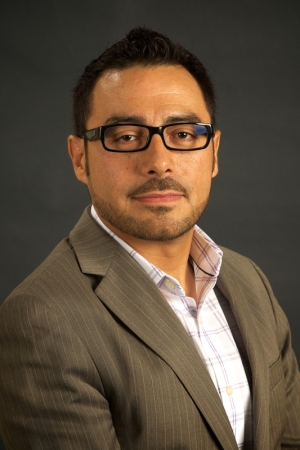Grant to Study How Affordable Care Act Will Impact Substance Abuse Treatment
May 23, 2013 / by Eric Lindberg- Research
A new project led by Erick Guerrero, an assistant professor with the USC School of Social Work, will explore how recent health care legislation affects the ability of substance abuse treatment programs to serve racial and ethnic minority clients.
In particular, Guerrero is interested in examining how the Affordable Care Act (ACA), known colloquially as Obamacare, will improve the integration of substance abuse treatment, mental health care, and HIV prevention programs, as well as its effects on treatment outcomes among African-American and Latino clients. Guerrero’s study is one of just five federally funded projects in the country focused on these questions.
“This area of inquiry is still developing, and it offers many opportunities to explore this historic policy legislation and its impact on people, particularly low-income racial and ethnic minorities,” he said.
Guerrero received a $428,327 grant from the National Institute on Drug Abuse to support the first two years of the project. Successful achievement of milestones during the initial phase will lead to funding for an additional three years, totaling $1.1 million.
The phased nature of the project fits well with the framework of the ACA, which is slowly being introduced into the health care landscape over a matter of years. Guerrero hopes to establish a baseline understanding of treatment and care before the legislation is fully implemented to better understand its overall effect.
“Given that health care reform in its initial stages was very ambiguous and was gradually gaining support, this grant conforms to that process of gradually understanding where health reform is going,” he said.
Guerrero plans to conduct surveys with approximately 750 staff members in 157 substance abuse treatment programs in Los Angeles County, including program directors, supervisors and counselors. Information on organizational factors, such as expansion of the public health insurance program known as Medicaid and pressure from policy makers and regulators to provide health and mental health care under one roof, will be linked to data about all clients receiving treatment for substance use issues in the county, an estimated 10,000 people every year.
Making those connections between national health care policies and how individual clients respond to treatment is an innovative component of the project, Guerrero said, and will provide a better understanding of how services can be delivered more effectively, particularly to low-income and minority clients.
“This is a nice contribution to trying to link historic policy initiatives with organizations’ practices and roles, such as leadership and readiness for change to client outcomes that are reported by the clients themselves,” he said. “That’s what I’m feeling the most optimistic and excited about.”
In addition to collaborating with Lawrence Palinkas and Chih-Ping Chou at the USC School of Social Work, who are serving as co-investigators on the project, Guerrero will work closely with representatives from the county’s Substance Abuse and Prevention Control division. He said county officials have been involved in his previous research efforts and characterized the collaboration as critical to the success of the new project.
“They see the kind of development and knowledge they need to make policy decisions,” he said. “None of this could be possible if they were not supportive, and they did not share their data.”
By identifying strategies to reduce health disparities, increase access to integrated care, and reduce HIV infection rates in some of the more impoverished areas of Los Angeles County, Guerrero said the project can create a roadmap for improving standards of care among vulnerable populations throughout the United States.
“Everybody talks about the need, but when you look at the kind of research that is funded and the interventions that are funded, they aren’t being implemented in these areas with low resources,” he said. “We just have to do a lot more work and make the extra effort to reach out to the neediest communities.”
To reference the work of our faculty online, we ask that you directly quote their work where possible and attribute it to "FACULTY NAME, a professor in the USC Suzanne Dworak-Peck School of Social Work” (LINK: https://dworakpeck.usc.edu)
